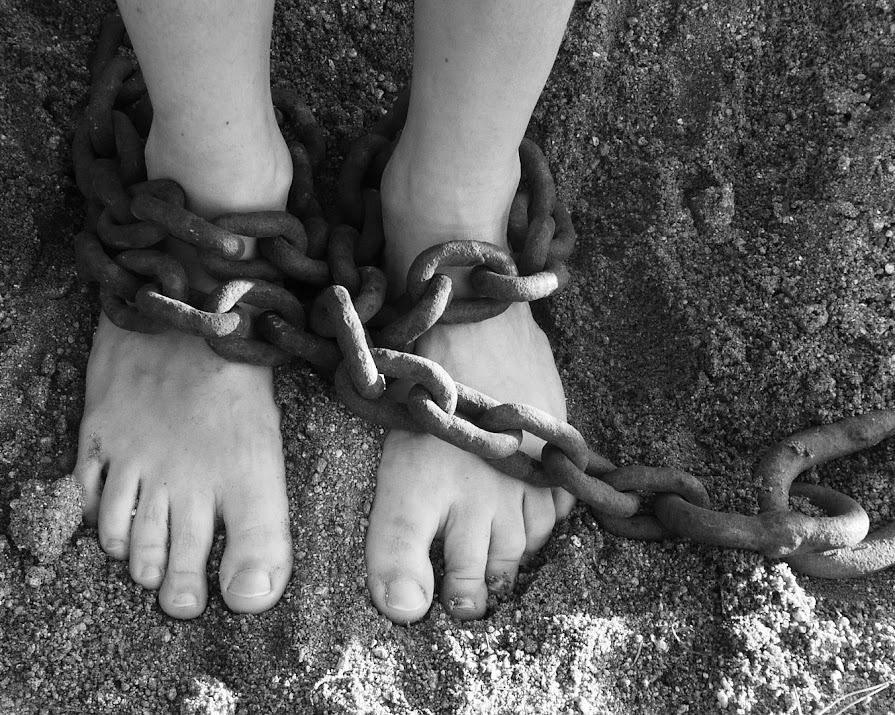By Grace McGettigan
07th Jan 2019
07th Jan 2019
While Irish women have claimed back our right to choose by repealing the Eighth Amendment, our counterparts in America are fighting their own battle.
In 38 states across the country, a foetus is regarded as a person separate from their mother; with the same human rights as anyone else. Though this might be celebrated by pro-life campaigners, the policy has led to some women being jailed for crimes as serious as murder; simply because they have suffered a stillbirth.
‘It should never have happened’
Recently, the New York Times profiled a number of American women who had been adversely affected by the laws surrounding murder and manslaughter of an infant in the US. In Arkansas, late one night in 2015, Anne Bynum (then 36) gave birth in her home to a stillborn baby girl. The following morning, she drove herself to the hospital – with her baby’s remains in the passenger seat – to seek medical treatment.
Doctors determined the infant died before birth, but because Anne hadn’t reported it immediately, she was arrested for the abuse of a corpse and ‘concealing’ a birth. She was later sentenced to six years in prison.
Related: Tragic Baby Belle
and the saddest secret of all
“I never thought I would get arrested for experiencing a tragedy,” Anne told the New York Times. “I lost my daughter and then I was incarcerated for it. Shunned. Shamed. It should never have happened.”
Similarly, in 2008, a woman named Jennifer Jorgensen was involved in a serious car crash. At eight months pregnant, she was forced to have an emergency Caesarean section, but the baby died five days later. Jennifer was blamed for the baby’s death and charged with manslaughter. She was later sentenced by a jury to spend up to nine years in prison.
Meanwhile, in Indiana, a woman named Bei Bei Shuai was jailed for the murder of her child; a baby girl who died shortly after birth, allegedly because Bei Bei had attempted suicide during pregnancy.
These are just three examples of hundreds of cases in which the US law pits two lives against one another – and more often than not, the baby’s life is seen as more significant than the mother’s.
Why does this policy exist?
The history behind this policy is complicated; involving issues such as drug abuse, racism, and abortion.
Racism and drug abuse
During the 1980s and 1990s, America saw an increase in the number of people using crack cocaine, particularly among poorer, African-American communities.
Largely due to a cultural attitude of racism, and partly due to a lack of understanding of societal and economic issues in these communities, it was widely reported by news outlets that African-American women were choosing to take crack cocaine during pregnancy intentionally, out of malice toward the unborn, rather than as a consequence of drug addiction.
Newspapers, magazines and late-night television programmes alleged that these women would give birth to “neurologically damaged”, animal-like babies; children who would be unable to function normally in society; children who would cost the taxpayers thousands of dollars for use of social services.
Related: Cocaine – the glamourless side
of the ‘champagne’ drug
The public – particularly across the southern states – were quick to believe what they were being told.
Drug-testing was introduced to hospitals in poor communities. Pregnant women who were found to have drugs in their system were charged with crimes including distributing drugs to a minor, child abuse, manslaughter, and murder.
By the time the racist stereotypes were proved to be false and began to be filtered out of societal attitudes, policies separating the foetus from its mother were already in place.
The abortion debate
Once the policies were in place, anti-abortion campaigners were eager for them to remain, as they fit their political agenda. Conservative politicians used, and still use the policy as a means to sway voters, with Republicans categorically advocating the right to life of the unborn; gaining support from religious communities in the process. Of course, this works both ways, with people who are against the policy often voting Democrat as a result.
A long way to go
While the abortion debate rages on, the welfare of American women continues to be forgotten.
Any woman who suffers a stillbirth or miscarriage deserves to be treated with compassion, empathy and care; not the threat of arrest and/or imprisonment.
While the law surrounding pregnancy in Ireland is more progressive than ever before, that in America has a long way to go.
For support during or after pregnancy in Ireland, visit anew.ie, cura.ie, or freephone the HSE’s My Options helpline on 1800 828 010.























